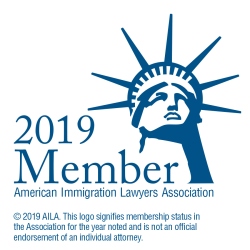American businesses can hire and retain foreign workers permanently by going through the “labor certification” process. As a part of this process, the American business must go through several highly choreographed recruitment steps designated by Department of Labor regulations. If a qualified American comes forward, willing and able to take the position at the offered salary, the business may not move forward with the labor certification process.
Assuming no qualified Americans come forward, the employer submits an online Application for Permanent Employment Certification (Form 9089) to the Department of Labor. This ten page form is quite detailed and complex. The employer must list all of the position requirements and all of the foreign worker’s qualifications. A number of pre-printed boxes on the form ask whether the foreign worker has the required education, experience and training, whether an alternate combination of education and experience are acceptable and if so, whether the foreign worker has this alternate combination of education and experience, and so on. These detailed questions take up about two pages.
But the Department of Labor has recently made it a practice to deny applications that fail to answer a question that is not asked on the form. That is, many occupations, such as doctors, accountants, and engineers require licenses to practice their profession. There is a special box on the form (in addition to the two pages indicated above) where the employer indicates that the license is required. Yet nowhere on the pages of detailed questions does DOL ask if the foreign worker actually has the required license. DOL has nevertheless taken the position that these applications will be denied if the employer does not indicate on the form that the foreign worker has the required license. Through an FAQ buried deep in the DOL website, it apprises employers where they must make this disclosure.
Businesses spend thousands of dollars on this application process, between advertising costs and legal fees. They invest tens of thousands of dollars in training employees. When DOL denies these applications the businesses have lost this money, or often they must start over and spend it again, keeping them from investing in the business and perhaps adding additional employees.
One would expect that DOL would understand that by disadvantaging American businesses, they are harming the American and foreign workers that those businesses employ.




